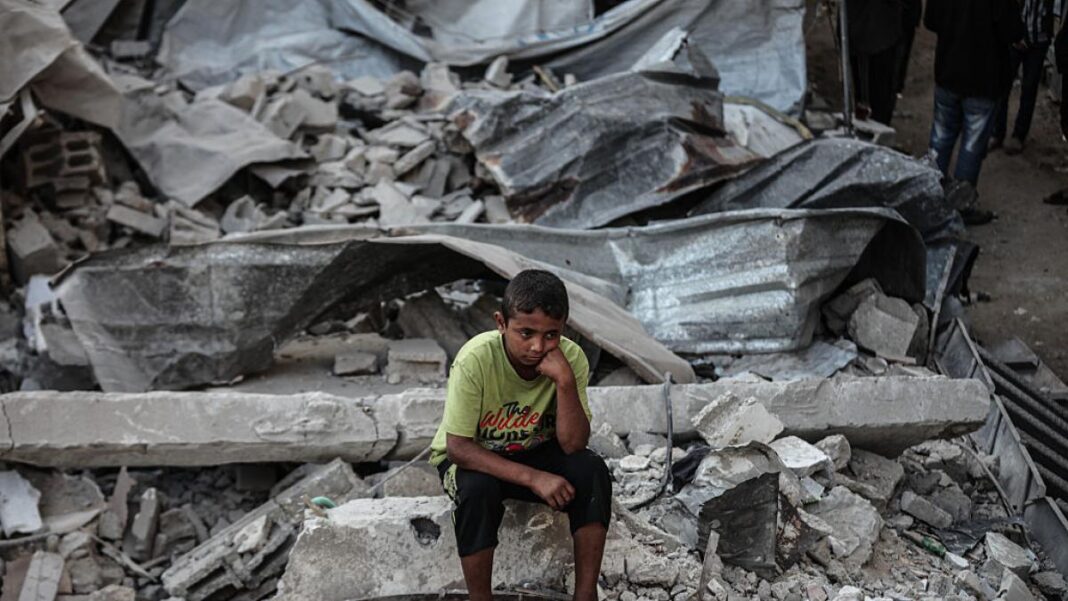### The Impact of the War on Journalistic Freedom in Gaza
#### The Context of the Conflict
Since the onset of the war on October 7, 2023, marked by Israel’s offensive in the Gaza Strip following Hamas terrorist attacks, the region has endured severe devastation. The Israeli military’s entry into Gaza has raised critical concerns about press freedom and journalistic access, especially as independent media coverage becomes increasingly challenging.
#### Legal Proceedings and Delays
On a recent Thursday, the Israeli Supreme Court began deliberating an appeal presented by the Foreign Press Association (FPA). Israeli Attorney General’s office claims that the evolving conflict makes it premature to assess the implications of allowing press access to Gaza. This situation has led the Prosecutor’s Office to request another 30-day extension to review the circumstances—a delay that marks the tenth postponement of this pivotal request first lodged a year ago.
The court provided Israeli authorities a month to devise a plan for allowing foreign journalists into Gaza. However, the lack of a scheduled date for the next hearing has left many in the press community concerned about continuous delays.
#### Voices from the Press Community
Tania Krämer, president of the FPA and a correspondent for DW in Jerusalem, articulated a shared sentiment among journalists, stating, “We have waited a long time for this day. It is time for Israel to lift the closure and allow us to do our work alongside our Palestinian colleagues.” Following the Supreme Court’s decision shortly after the hearing, the FPA expressed disappointment. Krämer hopes the court will not allow any further delays by the state.
Josef Federman, a board member of the FPA, echoed these sentiments, highlighting the frustration around the state’s repeated use of delaying tactics to prevent reporters from entering Gaza. He stated, “We didn’t get exactly what we wanted,” referring to the expectation of an immediate opening of borders for journalists.
#### The Press Under Siege
Gilead Sher, the FPA’s legal representative, has argued that the ongoing restrictions on press access to the Palestinian enclave constitute a major infringement on freedom of expression. The current climate has resulted in approximately 400 journalists from 30 different countries unable to fulfill their journalistic duties. It is important to note that only eight journalists have been permitted to enter Gaza in the last year—an alarming statistic given the critical need for independent coverage.
Over the past two years, Israeli authorities have allowed limited entry to select journalists, primarily those embedded with the military in predetermined, civilian-free zones, raising questions about the level of access available to unbiased media outlets.
#### Calls for Change
Since the beginning of the conflict, the FPA has consistently demanded independent access to Gaza, with their requests repeatedly ignored by Israeli officials. The global organization Reporters Without Borders (RSF) has joined in solidarity, amplifying the call for unrestricted access.
The Israeli Supreme Court previously denied a similar request from the FPA in 2024, Justifying the restrictions as necessary for security reasons. Officials argued that press access could inadvertently disclose vital military information, potentially endangering Israeli soldiers.
#### Shifting Dynamics
FPA lawyer Gilead Sher noted that conditions could have been reassessed following previous ceasefires in November 2023 and early 2025 or during periods of reduced fighting. However, he stressed that “the situation has changed radically,” highlighting a new ceasefire agreement between Israel and Hamas. This shift raises questions about the legitimacy of continued restrictions on journalistic access now that a framework for peace appears to be in place.
Antoine Bernard, the director of defense and assistance at RSF, highlighted the grim realities faced by journalists in the region, revealing that more than 210 Palestinian journalists have lost their lives during the ongoing conflict.



